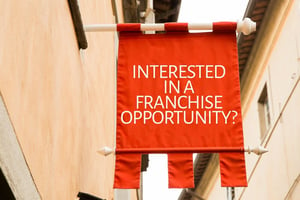Franchising as a Corporate Exit Strategy
For many Singaporean professionals earning around $100,000 annually, the question inevitably arises: "What's next?" While this salary is substantial, it may not be enough for significant property investments or early retirement in Singapore. Increasingly, franchising is emerging as a potential path out of the corporate world – but is it right for you?
Understanding Franchise Models in Singapore
The franchise industry has evolved beyond the traditional model. Entry costs vary significantly. Traditional franchise fees can start from $25,000 for a 5-year term, with ROI expectations ranging from 18-24 months. However, these figures assume proper execution and market conditions.
With franchising becoming a popular exit strategy for many professionals looking to move away from corporate life, here are some franchise models to consider:
1. Traditional Franchise Model
Complete business system with comprehensive support but requiring strict adherence to SOPs
The traditional franchise model involves a franchisor granting a franchisee the right to operate a business under the franchisor's brand, utilising established systems and support. This model is often characterised by a structured fee system and comprehensive training.
2. Licensing Model
Lighter touch model allowing more operational freedom while using the brand
In a licensing model, the franchisee pays for the right to use the franchisor’s brand and intellectual property without the full operational support that a traditional franchise offers. This model provides more flexibility but less direct support.
3. Consignment Model
Lower risk entry with shared inventory management
The consignment model allows franchisees to sell products without purchasing inventory upfront. Instead, they pay the franchisor after selling the products, which minimises initial investment risks.

Initial Capital Requirements and ROI Expectations
Before diving into franchising, it’s essential to understand the financial commitments involved.
Franchise Fees
Franchise fees can vary significantly based on the brand and model, typically ranging from $20,000 to $100,000. Understanding these fees is crucial for budgeting and financial planning.
Expected Breakeven Timeline
The breakeven timeline for franchises can range from 12 to 36 months, depending on various factors like location, market demand, and operational efficiency. New franchisees should have a plan to monitor and optimise performance during this period.
Additional Costs to Consider
Beyond franchise fees, potential franchisees should consider additional costs such as:
- Equipment and setup costs
- Ongoing royalty fees
- Marketing and advertising expenses
- Staff salaries and training
Key Considerations Before Franchising
Due Diligence Essentials
Conducting thorough due diligence is vital for anyone considering franchising. Before taking the plunge, consider these essential factors:
- Cash Flow Analysis
Evaluate the cash flow projections to ensure the franchise can cover expenses and generate profits. Understanding the flow of money in and out is critical for financial health. Understand not just the top-line revenue but working capital requirements and seasonal fluctuations. - Margin Evaluation
Analyse the profit margins of the franchise model. High margins can indicate a more sustainable business, while low margins may suggest challenges in profitability. - Scalability Assessment
Consider if the business model allows for future expansion, either locally or regionally. A scalable model can lead to further opportunities and expansion. - Market Positioning
Evaluate if the brand has sustainable competitive advantages, especially in saturated markets like F&B. - Technology Integration
Factor in ongoing technology upgrade costs. Modern franchises require regular system updates to remain competitive. - Market Trend Analysis
Research market trends to ensure the franchise aligns with current consumer demands and preferences. Staying ahead of market shifts can help maintain competitiveness. - Operational Involvement
Franchising requires varying levels of operational involvement, which can impact success. - Time Commitment Requirements
Franchisees need to assess how much time they can dedicate to the business. Full-time involvement may be necessary in the beginning for success. - Hands-On vs Passive Ownership
Decide whether you prefer a hands-on approach, actively managing day-to-day operations or a passive ownership style, relying on staff to run the franchise. - Staff Management Considerations
Effective staff management is critical for a franchise’s success. Consider the implications of hiring, training, and retaining quality employees.
Hear from Co-founder Clippers & Smoovee Skin and Managing Director of Ryan’s Grocery for their Smart Guide in choosing between Franchising, Licensing, and Consignment.
Common Pitfalls and Lessons
The "Too Rich" Investor Syndrome
Many wealthy investors underestimate the time and effort required to run a franchise, believing their financial resources alone will ensure success. This mindset can lead to neglect and operational challenges.
Importance of Operational Involvement
Franchisees who are actively involved in operations tend to perform better. Hands-on management can lead to improved customer service and operational efficiency.
Technology Upgrade Costs
Investing in technology is crucial for modern franchises, but unexpected upgrade costs can catch owners off guard. Budgeting for these expenses is essential.
Managing Family Involvement
When family members are involved in a franchise, personal dynamics can complicate business operations. Clear roles and boundaries should be established to avoid conflicts.
International Expansion Challenges
Expanding a franchise internationally presents unique challenges, including navigating different regulations, cultural preferences, and market dynamics. Thorough research and a strong strategy are essential for success.
For Singaporeans looking to maximise their startup capital, regional expansion presents interesting opportunities. Markets like JB and Malacca offer 40% lower setup costs while maintaining similar revenue potential, especially in locations frequented by Singaporeans.
However, international expansion comes with its own challenges:
- Local partnership requirements
- Regulatory compliance
- Supply chain management
- Quality control across borders
Real Talk: Is Franchising Your Exit Ticket?
Franchising can be a viable path out of corporate life, but it's not a guaranteed success story. Success typically requires:
- Sufficient capital beyond just the franchise fee
- Willingness to be hands-on in operations
- Ability to manage staff and customer expectations
- Understanding of local market conditions
- Patience through the learning curve
The most successful franchisees often treat their franchise as a new career rather than just an investment. If you're considering franchising as your exit strategy from corporate life, start by honestly evaluating your commitment level and operational capabilities—not just your bank account.
Remember: A franchise is not just buying a business system; it's buying yourself a new job. Make sure it's one you're ready to excel at.
Franchising can be an effective strategy for breaking free from the corporate rat race. By understanding various franchise models, conducting thorough due diligence, and being aware of common pitfalls, aspiring franchisees can position themselves for success and enjoy the benefits of entrepreneurship.
Let us know what you think about this topic, and what do you want to hear next.
You can now be our community contributor and make a pitch to have your favourite personality be on our show.
Join our community group and drop us your insights on this topic.










Let us know what you think of this post